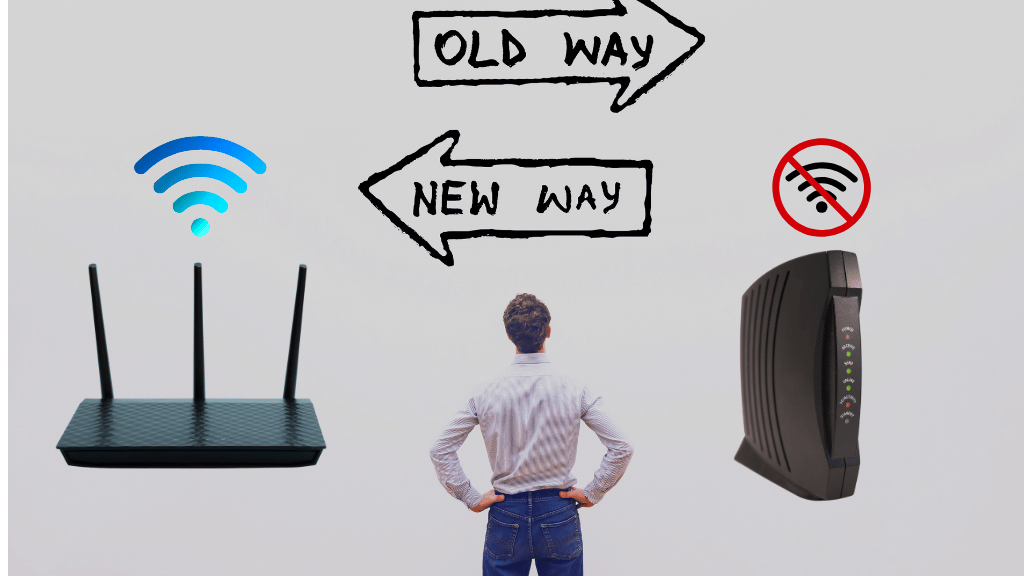Modems and routers are useful devices in our home or business network but are used for different purposes. Understanding the difference between modems and routers is very important because of how to manage our network.
Modem:
A modem stands for modulator & demodulator. It is used to modulate and demodulate analog signals, allowing computers to communicate with analog transmission lines. In the home internet connections, a modem is used as a bridge between our Internet Service Provider (ISP) and our local network. However, modems usually do not have the ability to manage local networks or distribute the internet connection to more than one device.

The primary functions of a modem are:
Signal Conversion:
Modems convert digital signals from our computer or network to analog signals for communication over the ISP’s network.
Establishing Connection:
Modems maintain a connection with our ISP, allowing you to access the internet. Different types of modems are used for many types of internet connections, like DSL (Digital Subscriber Line), cable, fiber-optic, or satellite.
Physical Connectivity:
Modems have ethernet ports to connect to network devices, such as a computer or a router, by using Ethernet cables.
Router:
Routers are used to create and manage a local area network (LAN) within your house or business. They assign unique and local IP addresses to network devices on the network, to allow communication between two or more devices.

The primary functions of router are:
Local Network Management:
Routers are used to create and manage a local area network (LAN) within your house or business. They assign unique and local IP addresses to network devices on the network, to allow communication between two or more devices.
Packet Routing:
Routers find the most efficient path for packets to travel data between devices on the local network.
Firewall and security:
Routers have also included firewalls that help protect your local network from unauthorized access and security threats from the internet.
Wireless connectivity:
Many modern routers have wireless feature (Wi-Fi), allowing network devices to connect to the internet without physical wire.
Gateway:
In some time, internet service providers (ISPs) provide a single device that works both like a router and modem. This device is the combination of a router and modem its also called a combo device or Gateway.
Functionality:
A modem is used to connect your local network to the internet, and a router manages the flow of data between your local network.
Connections:
A modem is used to connect to your ISP’s network, while routers connect devices between your local network.
IP Addresses:
Routers give local IP addresses to multiple devices in your network, while modems are used for the external IP address provided by the ISP.

Key Difference:
Functionality:
A modem is used to connect your local network to the internet, and a router manages the flow of data between your local network.
Connections:
A modem is used to connect to your ISP’s network, while routers connect devices between your local network.
IP Addresses:
Routers give local IP addresses to multiple devices in your network, while modems are used for the external IP address provided by the ISP.

Leave a Reply